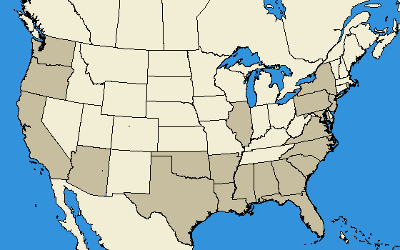
Black soldier fly 101
 I became intrigued by black
soldier flies a year ago, but quickly
realized that we didn't have enough food scraps to grow these hungry
larvae. Now that we've tapped
into the community's waste, it's time to
revisit black soldier flies. In the rest of this lunchtime
series,
I'll explain why we think black soldier flies are worth adding to our
farm and how we plan to go about it, so today I just want to talk a bit
about the flies themselves.
I became intrigued by black
soldier flies a year ago, but quickly
realized that we didn't have enough food scraps to grow these hungry
larvae. Now that we've tapped
into the community's waste, it's time to
revisit black soldier flies. In the rest of this lunchtime
series,
I'll explain why we think black soldier flies are worth adding to our
farm and how we plan to go about it, so today I just want to talk a bit
about the flies themselves.
What
are black soldier flies?
Hermetia ilucens
is a small, black fly that spends most of its life in the larval
stage. Black soldier fly larvae eat any kind of decaying organic
matter, including food scraps, human and livestock waste, and more.
 Where do
they live?
Where do
they live?
Black soldier flies (Hermetia illucens) are tiny and they don't
bother anyone, so until people started harnessing them as composters,
we didn't pay much attention to them. This map, from Bugguide.net,
is "based on images submitted and identified by contributors. Range and
date information may be incomplete, overinclusive, or just plain
wrong." Experts on the internet report that black soldier flies
live in zone 7 and warmer, but we have them here in zone 6 and the map
suggests they might even dip into zone 5. You can see adults from
April to December in the Deep South, and from about June to September
further north.
Why
do we care about black soldier flies?
Black soldier flies have
the potential to quickly compost all kinds of organic waste, from swine
excrement in huge factory farms to food scraps from apartment-dwellers
with no room for a compost pile. As you'll see tomorrow, the
larvae are high quality livestock feed.
| This post is part of our Black Soldier Fly lunchtime series.
Read all of the entries: |
Want more in-depth information? Browse through our books.
Or explore more posts by date or by subject.
About us: Anna Hess and Mark Hamilton spent over a decade living self-sufficiently in the mountains of Virginia before moving north to start over from scratch in the foothills of Ohio. They've experimented with permaculture, no-till gardening, trailersteading, home-based microbusinesses and much more, writing about their adventures in both blogs and books.
Want to be notified when new comments are posted on this page? Click on the RSS button after you add a comment to subscribe to the comment feed, or simply check the box beside "email replies to me" while writing your comment.

That's great! We learned about BSF last year as well when they invaded our compost. At first we freaked, thinking they were a bad thing. Just a little research, though, told us quite the opposite.
We're hoping to harvest some this year, though I haven't quite figured out what method. I just know my chickens will be thrilled, as well as my plants! Nathan
I got freaked out when i saw this on my room, and even more when i saw a larvae, then i had to look on the web to know what species where they, and then i found your site. I was just curious in knowing how they got in my room and suddenly more of those started to appear, that's when i saw larvaes in some old wet socks that i had in my room, apparently the BSF laid their eggs in there. So i guess that's how they "spontaneously generated" in my room. Now the only question i have is how they got in my room on the first place hehe, i have a patio outside but no idea how they got in here since there is a wall between the patio and my room.
I just wanted to share my experience in an urban area and if i may ask if you know a site where i can learn more about these?? Thanks!
I've seen in a few places to use DE AROUND the bin to keep ants out.
I've been using a moat but I left town for a week and it dried up and now my bin is infested.
Can I use DE in the bin to kill the ants or will it also harm the larvae?